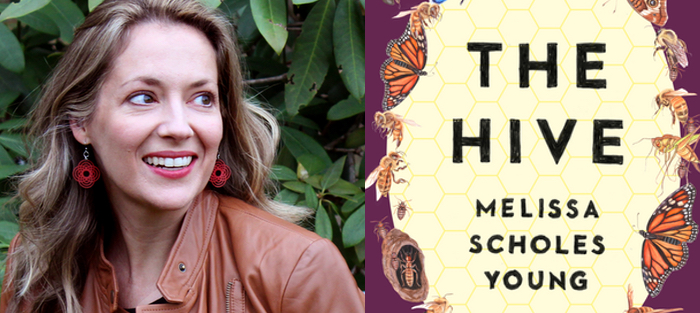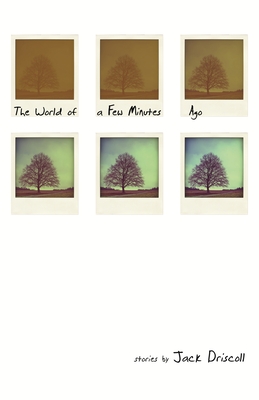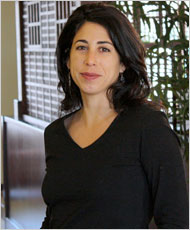It’s a great pleasure to read authors to simultaneously know their geographical territory and understand how to make the bones they dig up there feel like they belong to your own family. Melissa Scholes Young, a born and bred Missourian, amply demonstrates this capacity in her new novel, The Hive (Turner/Keylight Books). It tells the story of a “bug family” with a multigenerational pest control business on the Missouri River town of Cape Girardeau.
When the company’s current head, Robbie Fehler, dies unexpectedly, his wife Grace and four daughters struggle not only to keep it afloat but to find a life beyond the one he circumscribed for them. The Hive is at its most powerful and tender when it brings us through the continuous shifts in balance in the wake of Robbie’s death, which unleashes hopes (both suppressed and new) in his surviving family. Scholes Young doesn’t take the easy way out and simply announce that her characters have changed, but patiently walks us through the self-frustrating fits and starts of heavy inner transformation—an approach that makes the changes stick with readers because we’ve gone through each step of the way.
The Hive also offers readers a taste of America many will not normally see. Cape Girardeau is Rush Limbaugh’s hometown, and he’s an outsized presence there. Set in 2008, just as Barack Obama is about to become U.S. President, it digs beneath the surface of the country at a time when its own delicate balance was shifting.
Scholes Young’s first novel, Flood, was published by Center Street in 2017. She has also edited Grace in Darkness and Furious Gravity, two anthologies of new writing by D.C. women writers, and her work has appeared in such venues as the Atlantic, Washington Post, Poets & Writers, Ploughshares, and Literary Hub. A contributing editor at Fiction Writers Review and recipient of the Bread Loaf Bakeless Camargo Foundation Residency Fellowship and the Center for Mark Twain Studies’ Quarry Farm Fellowship, Scholes Young is an associate professor at American University. We corresponded via email at the end of the strangest academic year either of us could remember.
Interview:
Steven Wingate: I wanted to ask the autobiography question right away, having read your Literary Hub essay “What Needs Done: The Love and Burden of a Family Business,” which talks about growing up with a family in the pest control business, much like the Fehlers in your novel. Every individual work of fiction makes its own deals with the author’s autobiography. What kind of deals did you make? What did you decide to leave in or out, and did anything creep in without you knowing?
Melissa Scholes Young: Like the Fehler sisters, I was raised in a family pest control business in rural Missouri, but this is not my family’s story. I didn’t set out to write the familiar as fiction. I wanted to tell the story of feminism rising from rural roots and to wrestle with the politics of family business succession.
Anything that creeped in was by full permission. The story of Robbie and Grace’s honeymoon collecting insects for a pinned collection for his Entomology project is my parent’s story, so I asked them if I could use it in the novel. Growing up in a family business, children are necessary labor, so writing that came naturally too. I don’t write about the people in my life, but you’ll see their spirit on every page.
The deal was, I left out brothers. I have always wanted a sister. When I wrote the Fehler sisters, I imagined how their bond would be complicated and deep. Their griefs are shared: the loss of their parent, the financial threat to their family business and livelihood, and their absent mother. Maybe by imagining the Fehler sisters and their resilience, I was writing a gift of support for myself.
In the prologue there is a Huckleberry Finn reference, and Mark Twain shows up several times. It’s hard to set a novel on the Mississippi—particularly in Missouri—without Twain‘s ghost hovering over it. To what extent, and how, was that ghost a presence for you in writing this book?
The influence and mythology of Twain is strong in my work. My first novel, Flood, is a reimagining of Tom and Huck’s famous friendship as female, so Samuel Clemens’ ghost haunts the story for sure. I’m fascinated by Jane Clemens, Twain’s mother. Sometimes I’m more interested in what the women in his life have to say because they didn’t enjoy his platform. Twain evolved as a writer and humanitarian because of the influence of strong, independent women. So it was a natural fit to have Bryan, the Fehler sisters’ cousin, be a scholar of Mark Twain’s mother so we could hear her story too.
What were some big differences between writing that novel and this one? How long did you carry The Hive inside you before you started writing it?
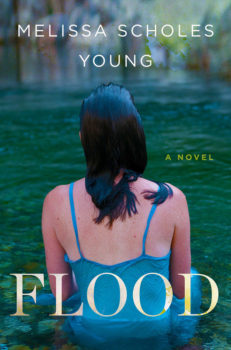 The challenge drafting Flood was to make the implicit from my own upbringing in Hannibal explicit for my characters on the page. I had to explain concepts that permeate the seasons growing up in a flood plain: sand bags, flood stages, levees. I was also exploring the mythology of Twain vs. the reality of his boyhood home. For The Hive, I knew the family business setting well but was challenged more by understanding the political dynamics of polarized places and how the sudden grief would shift the Fehler family.
The challenge drafting Flood was to make the implicit from my own upbringing in Hannibal explicit for my characters on the page. I had to explain concepts that permeate the seasons growing up in a flood plain: sand bags, flood stages, levees. I was also exploring the mythology of Twain vs. the reality of his boyhood home. For The Hive, I knew the family business setting well but was challenged more by understanding the political dynamics of polarized places and how the sudden grief would shift the Fehler family.
When drafting, I usually begin with a question. For The Hive, one of my questions was: “What’s the line between preparedness and paranoia?” Specifically, I was studying the preppers movement and asking how members, like Grace, the mother, balance their fears about the future with daily living. “Does worry mean you miss moments of love and joy? How far will you go to take from/harm someone else to save your own?” In drafting I’m writing toward answers.
I saw a photo recently of me having dinner with my family on our way to my debut novel launch at Left Bank Books in St. Louis and the paper napkin at my place is covered in ink. When I zoomed in, I read “Is Grace a Prepper?” So, here I am celebrating Flood, but I was already writing The Hive.
One of my favorite things about the novel is the complex relationships your characters have with bugs. On one hand, the Fehlers kill them for a living. On the other, there’s an intense love and fascination for them. This is especially embodied in Kate, the youngest Fehler sister—referred to by her mother Grace as “the real bug girl.” How did you manage this as you rendered your characters?
Much of my research was also into the insect world, so I spent time reading pest control magazines and learning the science of bees, bed bugs, and methods for managing them without chemicals. The research is rendered through Kate because as the youngest Fehler sister, she has the kind of freedom gifted by parental neglect. Through her bed bug research, Kate invites Val, the dog trainer, into the story. Val is the outsider so she’s a useful character to see how the family will embrace or challenge her. Val wants to work with animals to serve all our natures and she’s a close observer like Kate. They are both more interested in harnessing the power of animal relationships to reduce chemicals that destroy our environment and harm people. When it comes to pests, we’re uncomfortable with how much we need them. Our food wouldn’t exist without the work of pollinators so it makes sense to support them.
The Hive is in some ways a classic “drama of succession”—an examination of who takes over a business, a country, etc. Typically, we see this play out with young men, but you’ve situated that drama among women. What kinds of obligations and opportunities came from that decision? Were there any pitfalls you felt you needed to avoid?
In patriarchal families a son is usually essential to carry on the family line, but since the Fehlers have four daughters, Bryan is forced in by Robbie’s will to fill that role. But Bryan doesn’t. He’s cooperative, open-minded, and kind rather than macho and self-serving as Robbie had been. He wants a place in the hive but he does not need to dominate it to benefit from its value. Bryan wants to contribute and to be accepted for who he is, which seems a reasonable ask of any family member. That narrative decision led to many opportunities for my characters to go through their own metamorphosis (forgive me).
Let’s talk about the American Midwest and false fronts. One line really struck me: “The mat at the threshold read welcome, but no one really was.” It’s almost impossible to write about this region without taking into account the incredible effort people go through to keep up appearances. How do you decide, as the author who’s showing us both the false fronts and the truth beneath, when to leave the veil in place and when to pull it back?
I’ve always struggled with what we’re not willing to talk about. If you can’t define a problem, you can’t solve it; if we’re not airing the struggle or at least recognizing that not all members of our community are thriving, then it’s not functional to me. This goes against everything I was taught about keeping your business to yourself. When we busy ourselves too much with keeping up appearances, we might not hold enough space for authenticity, intimacy, and engagement with the world bigger than our own. I want to live a life large enough that I have the capacity for worlds and experiences different from my own, but I know plenty of folks who feel more comfortable shutting out that world. It won’t protect them from it, though. We are too interconnected and that privacy can be a false front. When I think a character is on a journey, such as Grace, I lift the veil. Grace joins her frantic prepping and fear with her Prepper community. She finds like-minded folks and travels to Prep U under the guise of skill building. At first, she’s comforted by the false front, but when the truth of the precarious line between prepping and paranoia are revealed, she has to wrestle with the harm she might have inflicted on her family, herself, and the larger community she thought she was protecting. Grace is brave to face it, own it, and recalibrate.
The novel is set in 2008, and includes Barack Obama’s election. But you capture the undercurrent, looking ahead to the election of 2016: “[O]ne day they’ll get their candidate and all the folks who thought the middle of the country didn’t matter will have to listen.” What has changed between the Missouri of 2008 and the Missouri of now—and, to broaden it out, between the America of 2008 and of now? What kind of hopes do you have and what kind of fears do you have?
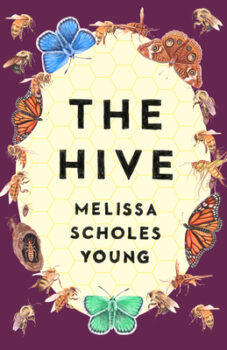 The Fehlers provide a working-class lens on a messy family facing a recession. Their struggles in rural America in 2008 laid the foundation for 2016. There is a responsibility to indict institutions rather than people. The Fehler family women share values, but they disagree about the political institution that want to preserve those values. Many of the family disagreements in the business and the marriage intentionally mirror the debates we’re having as a country about health care and human rights.
The Fehlers provide a working-class lens on a messy family facing a recession. Their struggles in rural America in 2008 laid the foundation for 2016. There is a responsibility to indict institutions rather than people. The Fehler family women share values, but they disagree about the political institution that want to preserve those values. Many of the family disagreements in the business and the marriage intentionally mirror the debates we’re having as a country about health care and human rights.
I’m not sure as much has changed as it’s been revealed. I hope that revelation leads to more critical examination and common ground, but I fear that folks aren’t really listening to anyone they disagree with anymore. The bubbles we build around ourselves—and we do this equally in rural and urban areas—aren’t protecting us as much as we think they are. In fact, I worry that the “othering” leads to a dangerous dehumanization.
Do you expect to explore this geographical territory in future projects? Can you see a point where you stop and move away from this influence and set a novel somewhere else? If so, what’s it like to imagine writing it? If not, what do you hope to achieve by keeping your focus on that milieu?
Midwestern literature is vibrant and necessary, and I’m honored to be a part of it. My next novel, Restoration, is set again in Hannibal, and the book explores the interconnectedness of community and the downfalls of rugged individualism amidst the backdrop of historic home preservation. Many of my characters in Flood and The Hive whisper and shout from the new novel too. I’m also working on a collection of creative nonfiction called Roots that reflects on feminist, working-class coming of age in middle America. I’m not done writing about the Midwest, and it seems not done yet teaching me, especially in our polarized political divide, so I’ll keep answering that call as long as the voice is clear. I write about the Midwestern community that raised me; I’m proud to call them my own but loving something means seeing it too.

